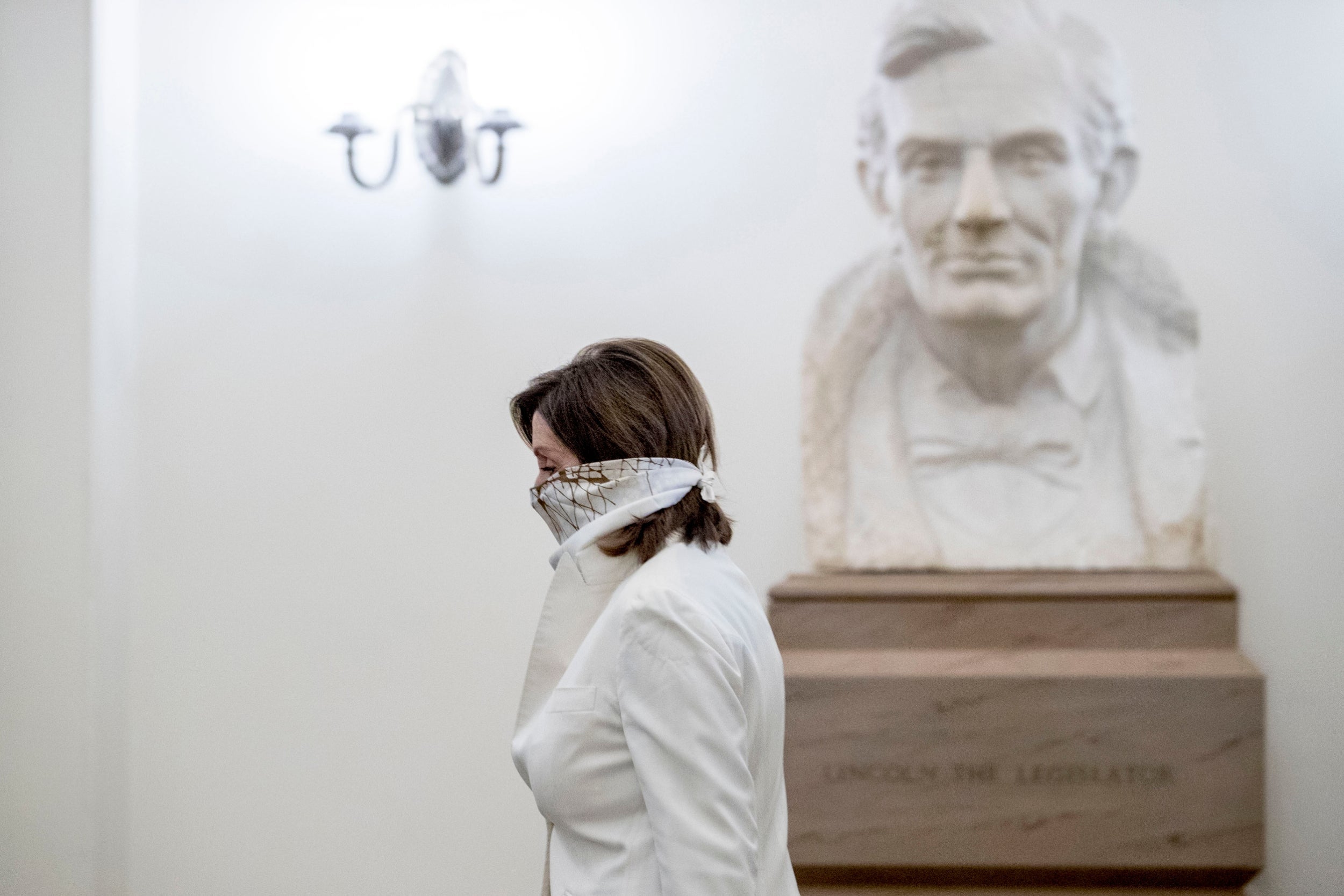Why the next coronavirus bill will be the toughest test yet for both Democrats and Republicans
Pelosi and McConnell must once again bridge the parties if they're to reach a timely deal — but their differences have widened dramatically, writes US political correspondent Griffin Connolly


On the $2.2trn coronavirus relief package in March known as the CARES Act, Congressman Thomas Massie and Congresswoman Alexandria Ocasio-Cortez were the sole objectors.
A month later, on a $484bn follow-up relief bill, three conservative House Freedom Caucus members and Kentucky GOP Senator Rand Paul joined them in opposition (if not officially, then verbally).
Now, with lawmakers from the outer wings of each party increasingly -- and more vocally -- dissatisfied with the final products that have landed on Donald Trump's desk and become law, Speaker Nancy Pelosi and Senate Majority Leader Mitch McConnell face their toughest test yet to reach a compromise on an essential fifth coronavirus response bill that politicos are calling "CARES 2."
The issue is, folks like Ms Ocasio-Cortez and a growing gaggle of progressive grumblers aren't particularly keen on compromise right now.
"Incrementalism is not helpful in this moment," Ms Ocasio-Cortez told reporters last Monday on a conference call with other House progressives and liberal outside groups, many of whom urged Democrats, futilely, to strike down last week's relief bill.
"It's not helpful for people to say, 'Oh, well, we got something so we might as well support it. ... We got a nickel, we got a dime in a trillion dollar bill, [and] a nickel is more than nothing, so we should support it,'" Ms Ocasio-Cortez said. "That is not acceptable, not in my community. ... A nickel doesn't help. It's like putting a Band-Aid on an enormous wound."
When Ms Pelosi was asked by NPR's Michel Martin on Sunday whether she's worried Ms Ocasio-Cortez's vote against the $484bn interim relief package suggested a brewing struggle to whip up enough progressive votes in favor of CARES 2, the speaker shot back, "No. No. I'm not concerned at all. I'm not concerned at all."
Ah, repeating yourself twice in the same answer -- a hallmark of confidence.
Boiled down to its most fundamental terms: Progressives want more (way more) while hardline conservatives want less (way less).
By "less," they mean no more government telling businesses what to do, as in nullifying the federal guardrails that limit small businesses to mostly covering their payroll expenses with loans from the Treasury Department's new Paycheck Protection Programme (PPP).
They mean no government-funded "contact tracing" programmes that help identify who has come in contact with people who have contracted coronavirus, because nothing -- not even one's health -- is more valuable than freedom and privacy.
“We cannot and must not fund government surveillance of Americans—healthy or symptomatic,” said Freedom Caucus Chairman Andy Biggs, who voted against the interim bill last week. “We cannot afford to relinquish the individual liberties that make America great.”
And, of course, as we learned last week, they mean no bailout money for states and local governments, as when Mr McConnell suggested states with overleveraged budgets before coronavirus file for bankruptcy instead of seeking federal bailouts to deal with the toll of the health crisis.
That obviously isn't realistic. Even Mr Trump has signaled he's ready to shovel more money over to governors and mayors.
But Mr McConnell's statements make it so that instead of Democrats negotiating up from a GOP starting point of, say, a cool $50bn, they're negotiating up from $0.
On the Democratic side, Ms Pelosi and other House Democratic leaders are saying and doing all the right things publicly to keep their members engaged, even when progressive leaders like Congresswoman Pramila Jayapal keep questioning why leaders didn't use their "leverage" over Republicans bent on funding the PPP to milk more concessions, such as state and local aid.
"I'm very proud of our Democratic caucus," Ms Pelosi said, resolutely, in a topsy-turvy interview with CNN's Jake Tapper on Sunday.
"Their unity, their ideas were able to give us a bill that was so very much improved over what the administration was presenting," she said, repeating a familiar refrain in recent weeks where she credits her members' input for guiding her backroom bargaining with Republicans.
House Majority Whip Jim Clyburn of South Carolina, the newly minted chairman of the House Select Committee on the Coronavirus Crisis, held an online forum last week with liberal advocacy groups and Congressional Progressive Caucus members Jesús "Chuy" García of Illinois, Ayanna Pressley of Massachusetts, and Rashida Tlaib of Michigan where he indicated a House bill for CARES 2 had already been written that includes a raft progressive priorities.
House Democratic leaders will push for $82bn for 100 per cent broadband internet connectivity across the country and $1.8bn in funding for states to expand mail-in voting, among other liberal priorities, Mr Clyburn said.
Progressives are also asking for expanded rent and mortgage protection measures; a sharp increase in food stamp benefits; and recurring direct payments of $2,000 to every American adult for up to a year until the economy recovers.
Good luck getting congressional Republicans to agree to any of that.
The reality is, Ms Pelosi and Mr Clyburn will have to settle for less than their asking price, and Mr McConnell and House Minority Leader Kevin McCarthy will have to settle for way more than theirs. Then they'll break to their respective camps and twist the arms of progressives and deficit hawks, respectively.
Only problem is, a lot of those arms are getting numb.
Mr Paul, who himself contracted Covid-19 but was asymptomatic, downplayed the dangers of the disease in a floor speech last week as he rose "in opposition to spending $500bn more." He called for governors to re-open the economy despite health experts' warnings that a swift end to social distancing without the proper testing could speed up and exacerbate an expected second wave of cases.
"No amount of bailout dollars,” Mr Paul said, “will stimulate an economy that is being strangled by quarantine.”
Join our commenting forum
Join thought-provoking conversations, follow other Independent readers and see their replies
Comments